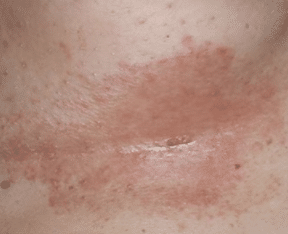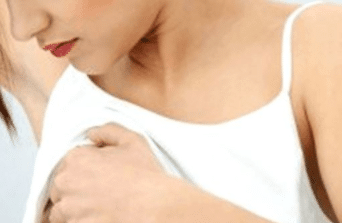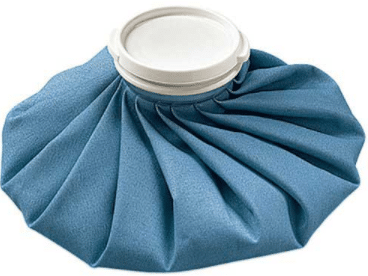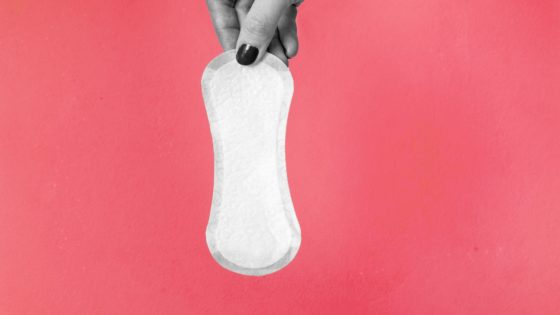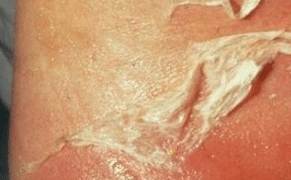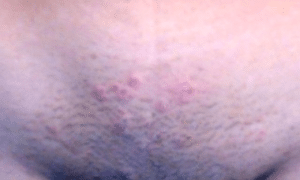Do you have itchy boobs? Itchy breast is a common problem especially during early pregnancy and when breastfeeding. The itchiness may be characterized by other symptoms like a rash and an urge to scratch. Continue reading to explore more on other causes and how to get rid of it.
Itchy Boobs Symptoms
Itchy breasts are normally characterized by other symptoms depending on the cause. The itchiness can be mild or severe and it can affect the areola, nipple, and areas around the breast.
You may notice a small rash on the affected areas that are itchy or causes an urge to scratch. When caused by dermatitis, the rash may develop to blisters, oozes and form a crust over.
However, it is recommended to resist the urge to scratch. Scratching not only worsen the condition but can also cause small injuries on the breast that can get infected. An infection may complicate treatment of the itch.
Inflammatory conditions can cause itching of one or both of the boobs. In this case, itching may be accompanied by other symptoms like red patches on the skin and a warm feel on the breast. Most women may also experience itching, tenderness, swelling in breast and lumpy breast during their monthly periods.
These symptoms should be able to disappear after a few days on their own or after using some of the natural home remedies. However, don’t hesitate to visit your health care provider when the symptoms persist for a longer period of time or become worse.
What Causes Itchy Boobs
Are you having an itchy nipple, areas around it or the whole breast? This condition can be brought about by a number of conditions or causes. Some of the causes are less harmful to your health while others can life-threatening when left untreated. They include the following;
- Allergic Reaction
An allergic reaction can cause a condition known as contact dermatitis that is responsible to itching of your breast. Just like any other part of your body, breast is sensitive too. Frequent changing the use if lotions, fragrance or detergents increases the risk of contact dermatitis.
Our bodies are different, some people may develop an allergic reaction immediately when exposed to strong irritants while others may show symptoms after repeatedly exposing themselves to irritants. Therefore if your skin did not react to a certain irritant after the first use doesn’t rule out the possibility of an allergic reaction.
Contact dermatitis normally occurs in the area that is directly exposed to the irritant. Therefore, washing your bra with strong detergents can cause itching on your breast. According to the mayo clinic, contact dermatitis is characterized by symptoms like:
- Mild or severe itching
- Red rash on the affected area
- Bumps that may blister, ooze and form crusting
- Dryness and cracking of the affected area
- Swelling and tenderness
Different parts of your body including the boobs may also get an allergic reaction from medications like antibiotic creams, certain food substances, formaldehyde present in preservatives and disinfectants, nickel with is used in jewelry, plants, airborne substances and personal care products.
- Atopic Dermatitis
Atopic dermatitis is a type of eczema that causes itchy, red, cracked and inflamed patches on the skin. Eczema is not a contagious condition, it is triggered by environmental factors like smoke and pollen. Reactions to certain foods like nuts and dairy products can also trigger this skin condition. Apart from itchy breasts, it is characterized with:
- Rash on various parts of the body including breasts
- Dry and scaly skin
- Permanent itching
- Skin infections
Although the exact cause of eczema is unknown, it is believed to result from hereditary factors and environmental factors like irritants, allergens, hot and cold temperatures, certain foods, stress, microbes and hormonal changes in the body.
There is no treatment for atopic dermatitis although the doctor may give you some medications to alleviate the symptoms and prevent further infections. Some of the natural home remedies that we have outlined below can also help manage this skin condition.
- Pregnancy and breastfeeding
Are itchy nipples early pregnancy signs? The answer may be yes. During the early stages of pregnancy, your body normally starts sending some signals as it prepares for the baby. If you miss the itchiness during the early stages of your pregnancy, be sure that you will experience itchy breast before delivery.
Many women have reported itchy nipple, areola or the whole breast during pregnancy. This normally happens because of an increase in the size of the breast that stretches the skin and thus making it more sensitive.
During breastfeeding, the breast especially nipple can become itchy and swollen especially for the first time mothers. The milk duct on the nipple may take some days to open fully. Wrong positioning of the baby during breastfeeding can also cause sore and itchiness.
- Mastitis
Are you breastfeeding? Mastitis is an infection in the breast that is common in breastfeeding mothers although it can affect any women. This infection is characterized with itchy sore nipple, warmth, and redness of single or both boobs. The other symptoms of mastitis include:
- The swollen area on the breast
- Pain when touching the affected area
- Lump or hardness in the affected breast or breasts
- Discharge from the nipple that may be white or contain streaks of blood
- Burning sensation when breastfeeding
Mastitis results from build-up milk within the breasts, a condition known as milk stasis. This normally happens when missing to breastfeed the baby, baby having a problem with suckling or poorly attaching the baby on the breast when breastfeeding. The build-up milk can become infected with a bacteria to cause mastitis.
Non-breastfeeding mothers can as well get mastitis when the bacteria enter the breast from cracked or damaged nipple from piercing among others. Mastitis can be treated by taking prescribed antibiotics from your doctors after performing some tests.
- Insect Bites
Some of the insect bites can leave you with itchy breasts. The common insects that can cause these conditions to include the bugs, dust mites and mosquitoes. Itchiness from some bug bites is accompanied with red spots on the affected area while other may leave no marks.
Dust mites that may be found in the mattress can also leave you with itching mark-free bites. Fumigation or applying pest sides in affected beddings, using pillow protector and mosquito nets can help in killing or keeping such insects away from your skin.
- Heat Rash
Having large boobs and wearing an ill-fitting bra with underwire can cause rash between breasts or beneath. Friction, heat, and sweat are major ingredients for that nasty itchy feeling. Fortunately, heat rash can easily be controlled by wearing the correct size of bra and keeping the breast area dry and cooled.
- Fungal Infection
Fungal infections caused by Candida can also lead to itchy breasts. Candida is a yeast that thrives well in dark and moist areas like the folds on your breast. This infection is also characterized by other symptoms like red and flaky skin. The affected area can also form sores that develop into blisters.
Fungal infections on your breast can be controlled by keeping the fold dry and clean. Your health care provider can also provide you with antifungal creams that are applied to the affected areas. There is also another natural treatment you can use to control this condition.
- Paget’s Disease
This condition is also responsible for itchy nipple and areas around the breast. This disease can be described as a type of cancer that affects the nipple and the surrounding areas. Paget’s disease is also accompanied with other symptoms like bleeding or oozing nipple.
Other Causes
- Inflammatory breast cancer
- Hormonal changes
- After breast augmentation
- Jogger’s Nipple
Itchy Boobs Early Pregnancy
During pregnancy, your body undergoes various changes including the breasts in preparation for the coming baby. The breast including the nipple normally starts to increase in size. The skin around it also stretches and hence triggering an itchy feeling.
To relieve the itchiness, apply a natural moisturizer like coconut oil, almond oil or vitamin E oil. Try and resist the urge of scratching as it may worsen your condition as well as risking an infection. Due to the increasing size of your breast during pregnancy, it is also a good idea to adopt the correct size of bra.
Choose a bra that is made from soft materials, avoid irritating fabrics such as wool and cashmere blends. Persistence irritation on the nipple can trigger itchiness. However, don’t hesitate to visit your doctor when if you notice some signs of infections on your breast.
Itchy Breasts during Breastfeeding
Are you breastfeeding and your breast especially the nipple is so itchy and causes an urge to scratch? Itchy nipples are so discomforted especially when it ranges from mild to severe. The itchiness can affect one or both of the nipples. There are a number of causes that causes itchy nipple while breastfeeding. Some of them include:
Infections. The infection causes itching in company with other symptoms like redness, tenderness, and swelling. An infection can result from bacteria and fungus. Bacterial infections are characterized by the presence of pus from the affected nipple while fungal infections cause dry, flaky or scaly skin that is so itchy. Major breast infections in breastfeeding mothers are thrush and mastitis.
Breast Engorgement. Engorgement is a problem that is common with breastfeeding mothers. This normally happens when your baby sleeps most of the time especially at night and leave you with overfull breasts. This can cause an itchy feeling on your breast
Engorgement is normal but there are a number of things you can do to relieve yourself. Some of them include; breastfeeding frequently, pumping out the milk and making turns with each breast when breastfeeding your little one.
Dry and cracked skin. The dry and cracked skin around the nipple is common during the early weeks of breastfeeding especially for the first time moms. Dryness and small cracks on the nipple can initiate an itchy feeling. Applying a moisturizer on the affected nipples can help to soothe the itchiness.
Best Natural Home Remedies for Itchy Breasts
There are different natural home remedies that have anti-inflammatory and antifungal properties that can help to treat or alleviate itching and other symptoms. Some of these remedies help in treating the underlying cause of the itchiness while others alleviate the symptoms as you seek medication. They include the following:
- Cold Compress
Applying a cold compress to the affected breast helps to relieve itchiness and other symptoms like swelling. Unlike exposing the affected breast to cold temperatures that may cause dryness, cold compress helps to manage the symptoms as well as leaving the affected breast comfortable.
How to use:
- Wrap ice cubes in a clean and soft towel.
- Place it over the affected area on the breast for 10 minutes.
- Do not allow it to stay longer as it can cause frostbite on the affected area.
- Repeat the methodology 2 to 3 times a day.
- A mixture of coconut oil and tea tree oil
A mixture of coconut oil and tea tree oil are the best remedy to get rid of itchiness caused by fungal infections and atopic dermatitis. These two remedies contain antifungal and antibacterial properties that kill the fungus and bacteria that cause infections.
They are also effective moisturizers that penetrate the skin to keep it moist. This helps to prevent dryness and cracking of the nipple. According to the Mayo Clinic, tea tree oil has the power to alleviate itching due to bacteria and yeast infections.
How to use:
- Mix 1 tablespoon of coconut oil with 3 drops of tea tree oil.
- Use a cotton swab to apply the mixture directly on your irritated breast.
- Allow it to stay on the breast for 20 minutes before rinsing off with cold water
- Repeat the treatment 3 times a day until when your condition improves
- Apple Cider Vinegar
This ingredient has anti-inflammatory properties that help to alleviate itchy breasts. Its low pH also gives it more power to reduce Itchiness and keeping the affected area comfortable. Its acetic acid content gives antiseptic properties that help in fighting bacteria that cause infections.
How to use:
- Dilute raw apple cider vinegar with an equal amount of water.
- Apply the solution directly on itchy areas on your boobs using a cotton ball.
- Allow it to stay on the affected area for 15 minutes before washing it off with lukewarm water.
- Pat the area dry and apply natural oils like coconut oil, almond oil or vitamin E oil
- Repeat the treatment 2 to 3 times a day until the itching alleviates.
- Chamomile tea
Chamomile tea provides great relieve of skin itchiness as well as treating some of the skin conditions like a rash. Its anti-inflammatory properties help to soothe the affected area and hence providing a great relief from itchiness and other skin discomforts.
How to use:
- Prepare some chamomile tea in a glass.
- Use a cotton ball to apply it on the itchy area of your breast.
- Allow it to stay on your skin for 20 minutes before washing it off with lukewarm water.
- Repeat the treatment 3 time a day to stop the itching.
- Aloe Vera
Aloe Vera has natural healing powers that help to soothe itchy and irritated skin. It’s plenty vitamin nutrients penetrates the affected area of the skin to address itching and other underlying skin conditions that cause irritations.
According to Indian Journal of Dermatology Published reviews about uses and effectiveness of Aloe Vera on skin condition, it is clear that aloe Vera anti-inflammatory and antiseptic properties that help to treat skin inflammations as well as killing harmful bacteria that cause different skin conditions.
How to use:
- Pluck a fresh Aloe Vera leaf and extract gel from it.
- Use a cotton ball or your fingers to apply the gel on the itchy areas of your breast
- Alternatively, you can buy Aloe Vera gel that has some other added ingredients and applies to the affected areas.
- Use this treatment 2 to 3 times a day until your condition improves.
- Take Oatmeal Bath
Oatmeal is another effective natural remedy to get rid of the itchy nipple. It contains anti-inflammatory properties that soothe itchy and irritated breasts. It also penetrates the skin to clean clogged pores that may cause a pimple and other skin conditions.
Hoe to use:
- Grind 1 cup of oatmeal and add it into a bathtub of warm water and mix thoroughly.
- Allow water to stand for 5 minutes in order for the oatmeal to release the healing compounds.
- Soak yourself in that water and oatmeal solution for 20 minutes.
- Rinse yourself with clean water.
- Repeat the treatment twice daily to stop the itching.
- Peppermint Tea
Peppermint tea has anti-inflammatory properties that help to take away itchiness and other skin discomforts. Most of the breastfeeding mothers have found great relief from itching after using this natural remedy since it works effectively.
How to use:
- Brew a peppermint tea in a glass for some time.
- Apply the tea on itchy areas of your breast.
- Allow it to dry on the affected area before rinsing off with lukewarm water.
- Repeat the methodology 2 times a day to get the great relief from itching.
- Calamine lotion
Calamine lotion provides a great relief from skin itching and irritations. It contains anti-inflammatory compounds that penetrate the skin to alleviate itching and other skin discomforts. This lotion is applied directly on the itchy parts of your breast.
How to use:
- Obtain yourself calamine lotion from a natural drug store near you.
- Clean the affected areas by washing and use a clean towel to pat it dry.
- Apply the calamine lotion on the itchy area using a cotton ball
- Use it 3 times a day to get rid of itchiness.
Treatment – When to See a Doctor
Although most of the causes of itchy breasts normally heal on their own within a few days or after using home remedy treatment, some conditions can be serious and may require a medical attention from a doctor. Visit your healthcare provider right away in case of the following:
- Severe itching in that you cannot do your daily activities or sleep well.
- Persistence itching even after using some of the natural home remedy treatment.
- Infected scratches on the nipple or the surrounding areas.
- Warm, tender and red patches on the affected breast.
- Discharge from the nipple.
- Lump inside the breast.
- Changing color on the affected area.
The doctor will diagnose your condition or perform several tests to determine the underlying cause of your problem. He or she will know prescribe you antibiotic in case of a bacterial infection or anti-fungal medications for fungal infections. Ensure that you take the medication as recommended by your doctor.
How to Prevent Itchy breasts
It is said that prevention is better than cure. There are a number of precautions and measures you can put in place to prevent itchy and irritation of the breast. Some of them include the following:
- Avoid using strong deodorants, fragrance or detergents as they can cause an allergic reaction to the skin.
- Maintain good hygiene by bathing regularly. Use a clean towel to dry the areas under the breast and in folds to avoid fungal infections.
- Wash your clothes and beddings regularly.
- Wear the correct size and kind of bras and other inner wears.
- Apply a moisturizer on your breast regularly to prevent dryness and cracking of nipples.
- Avoid scratching skin around your breast.
- Breastfeed the baby fully or pump out the milk out to prevent mastitis.
- Wear protective clothing that covers your breast to protect the skin from the sun and harsh chemicals
- Drink plenty of water or drinks to keep your body including the skin hydrated.
- Wear soft and breathable clothing or fabrics to prevent irritation that can trigger itchy breasts.
Further sources and References:
- Itchy breasts: http://www.healthyandnaturalworld.com/itchy-breasts/
- 6 Reasons Your Boobs Are SUPER Itchy: http://www.yourtango.com/2017298955/why-are-my-boobs-itchy
- What Causes Nipple Itching? http://www.healthline.com/symptom/nipple-itching
- 4 Reasons Why Your Nipples May Be Itching: http://helloflo.com/4-reasons-why-your-nipples-may-be-itching/
- Contact Dermatitis: http://www.mayoclinic.org/diseases-conditions/contact-dermatitis/symptoms-causes/dxc-20338762
- Itchy Breasts: https://www.phaa.com/itchy-breasts-causes-treatment-and-prevention.htm
- Itchy nipples: https://blogs.webmd.com/womens-health/20120214/whats-making-my-nipple-itch-part-ii


